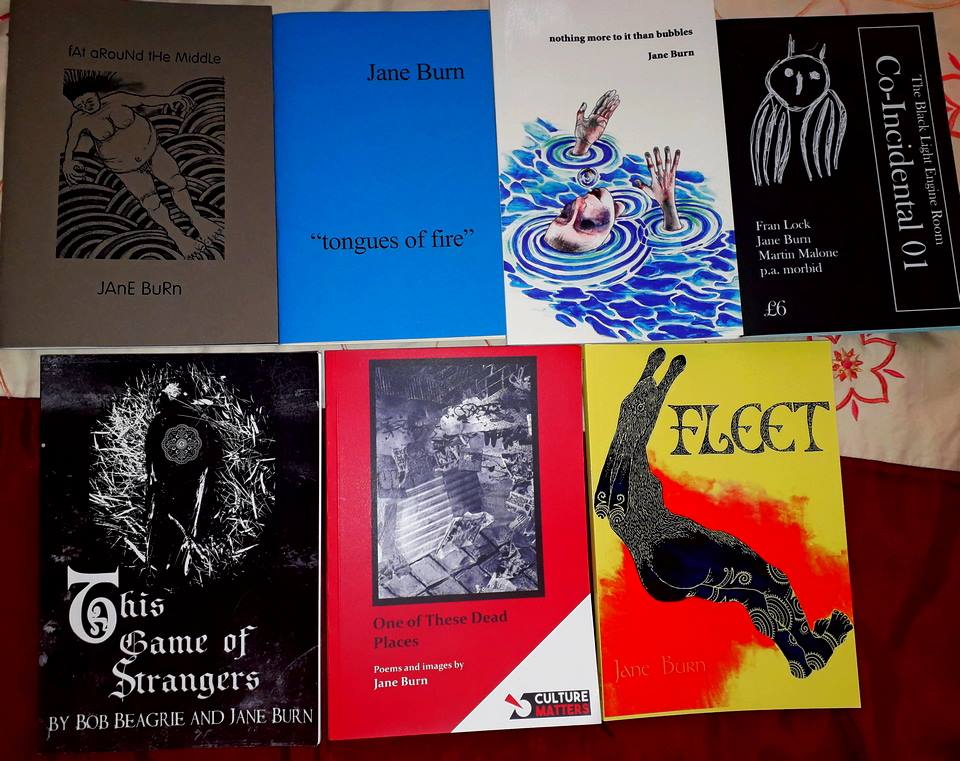
JANE BURN – POETRY AS HARD GRAFT, INSPIRATION, REACTION OR EXPERIMENT?
I interviewed poet & artist Jane Burn who won the Michael Marks Environmental Poet of the Year 2023-24 with A Thousand Miles from the Sea.
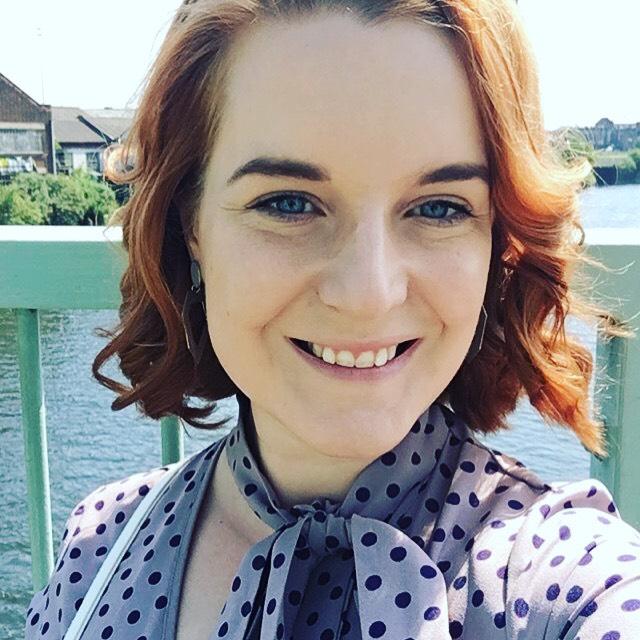
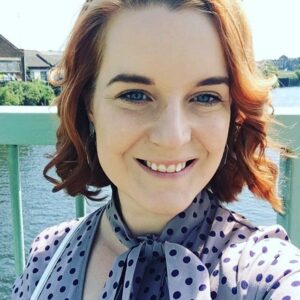
Hayley Sleigh is unusual in embracing the worlds of marketing, creative writing, charitable action and #endthestigma. I asked Hayley about her MA in Creative Writing, her compositional methods, her work with the voluntary sector and her experience of anxiety/depression.
Hayley has helped major corporations with their branding and marketing while raising money for people who are homeless or affected by cancer. She has also had articles published in The Fiction Pool, The Riff Raff, Dear Damsels and Time to Change.
Leslie: What were the early signs that you wanted to write? How did your technique develop, and who/what supported you in it?
Hayley: I was always a daydreamy sort of child, and I think that writing is a good way of dealing with an overactive imagination. I loved to read. I went through a stage when I was about nine where I was devouring six books a week – Judy Blume, Sweet Valley High, and Babysitter’s Club were my favourites. Being an aspiring author felt like a natural progression from being a fanatical reader.
I always received a lot of encouragement from family and teachers. I remember having to write a lot of poems and short stories in primary school, which I loved. There was particular poem about a little monster that was identified by my teacher as being a real achievement. I was asked to read it out in front of the other pupils on a few occasions – my fellow classmates probably got sick of it, to be honest! I loved the buzz of sharing my work with others and the satisfaction of when a piece comes out just as you intended.
Leslie: How would you describe your prose and your poetry to someone who hasn’t read your work?
Hayley: I love to experiment and push at the boundaries of what a piece can be. As such, I don’t think I really have a defined style but I’m sure my course mates would disagree. Generally speaking, my style is quite minimal – sometimes minimal to the bare bones – and always emotive. I am thinking about writing some more light-hearted pieces, so that my work isn’t all drama and despair! Thematically, I write a lot about current social issues and events – such as the #MeToo movement, Grenfell Tower, and Brexit – and I’m interested in comparing and contrasting past eras with the modern day.
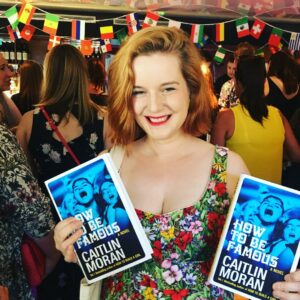
Leslie: How do your compositional methods vary from writing prose to writing poetry?
Hayley: With poetry I start off with fragments – lone words, phrases and ideas, in no particular order – whereas with prose I launch right into it with whole sentences and paragraphs. I would like to try composing prose in the same way I do poetry – I think the results would be interesting.
Leslie: How do the two sides of your working life – marketing & creative writing – contrast and complement each other?
Hayley: I think there are some significant similarities. These days I focus on copywriting, so I’m always immersed in words. I guess the main difference is that my marketing projects always have a clear purpose and audience(s), so I’m writing with those in mind, and the piece has to deliver. Sometimes I write fiction and poetry thinking of a specific audience, but sometimes it’s just about putting my thoughts on paper, and it doesn’t really matter what the audience response is. The audience response might be something completely wonderful that I couldn’t have foreseen. It’s not about getting the reader to do something or feel a certain way.
Leslie: What personal qualities make you a good marketing professional and an MA student of creative writing? What have you learned about yourself from both?
Hayley: I think there are several traits that help me in my marketing career, and in my development as a writer. They both require a lot of creativity, persistence and an insatiable appetite for learning and growth. Adaptability and resilience are two of the most important qualities for any successful career, and so I am always trying to work on those traits too.
In terms of what I have learned – I think I’m bolder and more courageous than I would’ve previously given myself credit for. I used to think that I could never be happy being self-employed and working from home, but I enjoy it. I now believe I am capable of leading my own career, and that I don’t need a boss to tell me what to do each day.
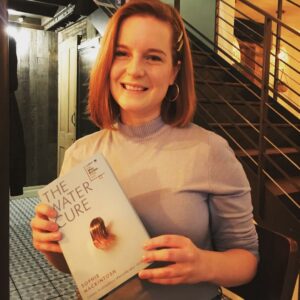
Leslie: Can you describe incidents that show how anxiety/perfectionism affects you? When has coming to terms with it been a gift – something that helps you to grow and see things differently?
Hayley: There was a time when I was responsible for putting together a large marketing publication, and I was losing sleep over the thought of it going to print and then someone finding an error in it. I was working in a high-pressure environment where I felt (rightly or wrongly) that that perfectionist attitude was encouraged.
Addressing my perfectionist tendencies has meant greater productivity and achievement, and taking more pride in what I produce. It’s good to spend time polishing and finessing a piece of work; the challenge is knowing when to draw a line under it and move on to the next one.
Leslie: Was there a lightbulb moment that helped you to embrace #endthestigma or was it a long slow process?
Hayley: In terms of dealing with the stigma around mental illness, it’s a constant up-and-down, back-and-forth process. I’m fortunate to have grown up in a family where talking frankly about mental illness was the norm; I’m not the only one who has struggled with my mental health. I’ve had great examples to look up; family and friends who take their mental health seriously and do what they need to do (counselling, medication, exercise) to get the most out of life.
In spite of that, I have internalised a lot of the stigma surrounding anxiety and depression, and it still affects me. I worry a lot about being lazy; making too many excuses for myself. There’s an ongoing push-and-pull between cutting myself a lot of slack and driving myself to do more.
Leslie: What role has feminism played in your creative life?
Hayley: I guess the main thing is having the belief that, as a female creative, I have something to say and I deserve to be heard. Beyond that, some of my writing is concerned with gender. A particular challenge for me is that I never want to say what has already been said a thousand times. These days there is a powerful millennial feminist hivemind – which is a good thing! It’s great that there is a lot of consensus. But I always want to say something new, or bring an old issue to life in a fresh and thought-provoking way.

Leslie: What have you learned from projects that ‘give back’, such as working with people on the streets?
Hayley: Projects like People of the Streets have helped me learn more about different types of people and ways of life, and develop greater empathy.
Leslie: In a nutshell, what nourishes and sustains your creative flow? How do you stay fresh, alive and innovative, avoiding cliché and cynicism?
Hayley: I try and take good care of myself. I’m not a starving artist – I’m a well-fed and rested one. A bit of exercise and fresh air can work wonders.
I can take inspiration from anywhere – a song might inspire a story, a news article might inspire a poem, and so on.
I love putting my writing out into the world, and the encouragement I get from others helps me to keep going.
Next week, Alice Boyd talks about improving environmental sustainability in the theatre/entertainment industry though her arts organisation Staging Change.
ABOUT LESLIE TATE’S BOOKS:

I interviewed poet & artist Jane Burn who won the Michael Marks Environmental Poet of the Year 2023-24 with A Thousand Miles from the Sea.
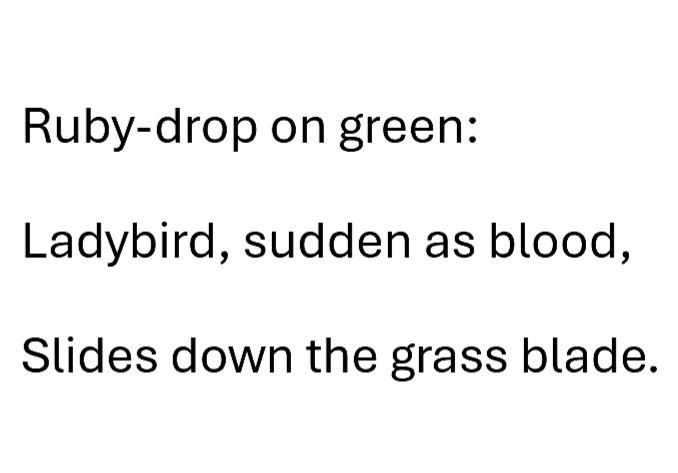
I interviewed ex-broadcaster and poet Polly Oliver about oral and visual poetry, her compositional methods, and learning the Welsh language. Polly says, “I absolutely love
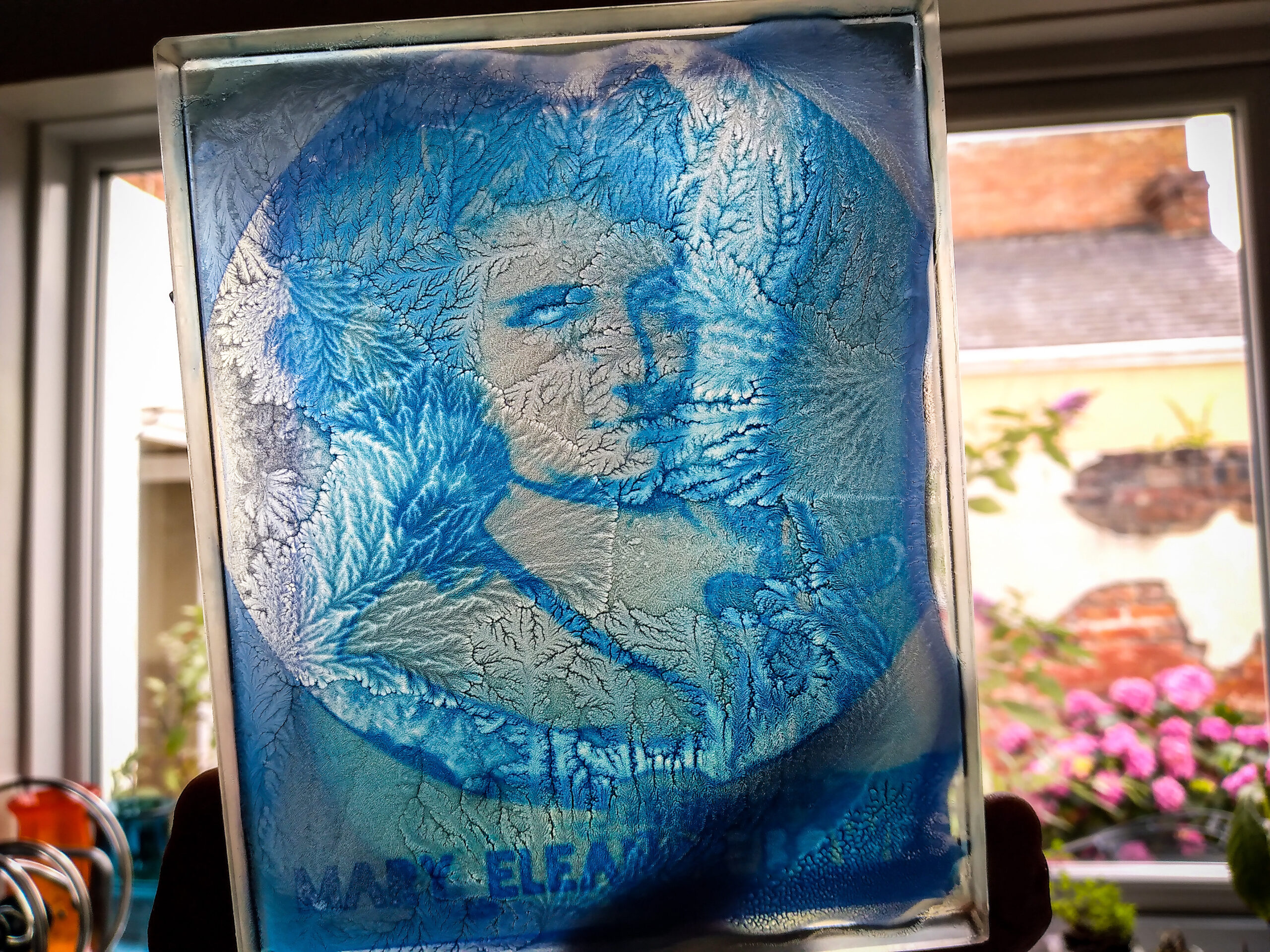
I interviewed Jo Howell who says about herself: “I’ve been a professional photographic artist since I left Uni in 2009. I am a cyanotype specialist.
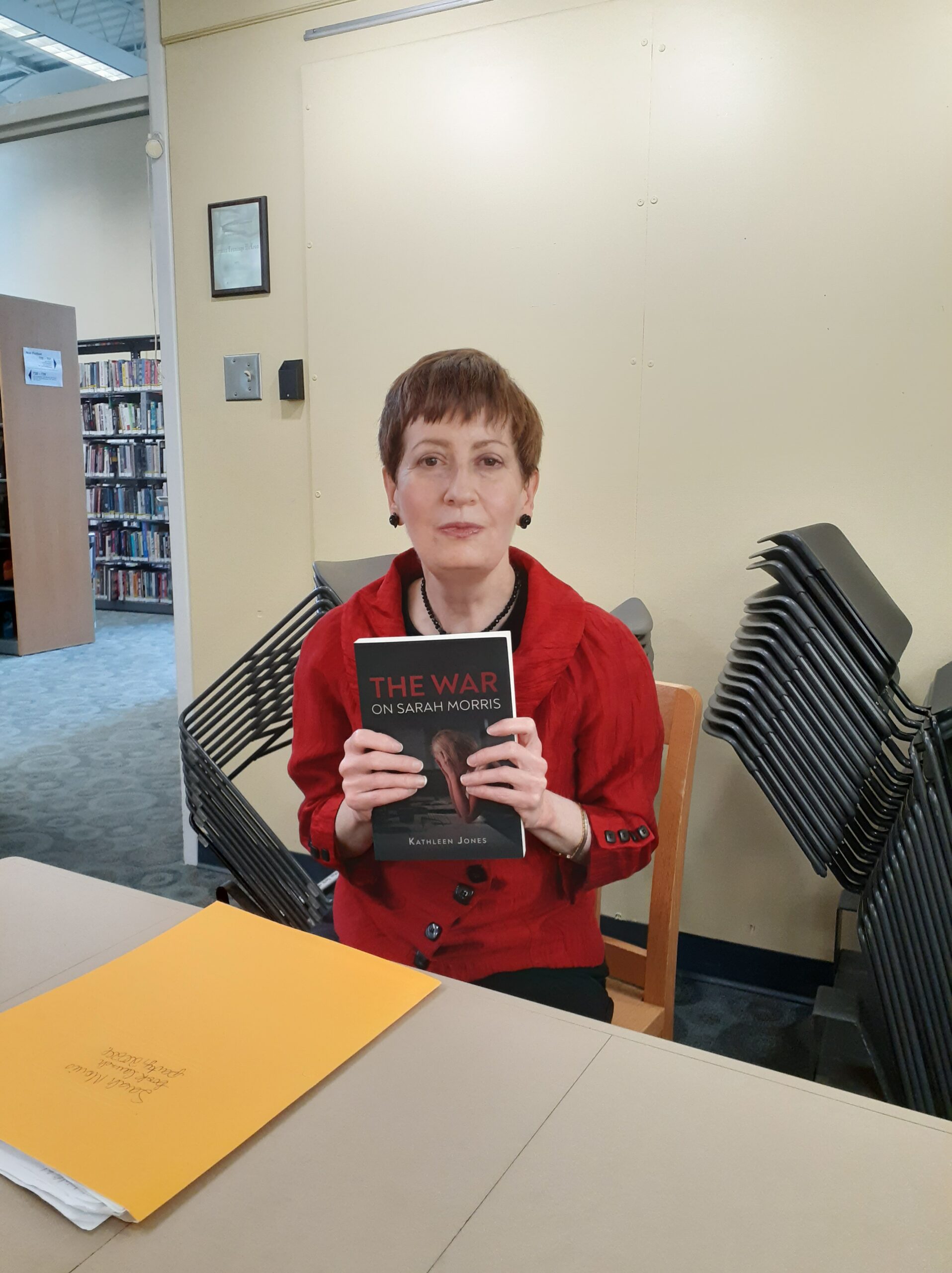
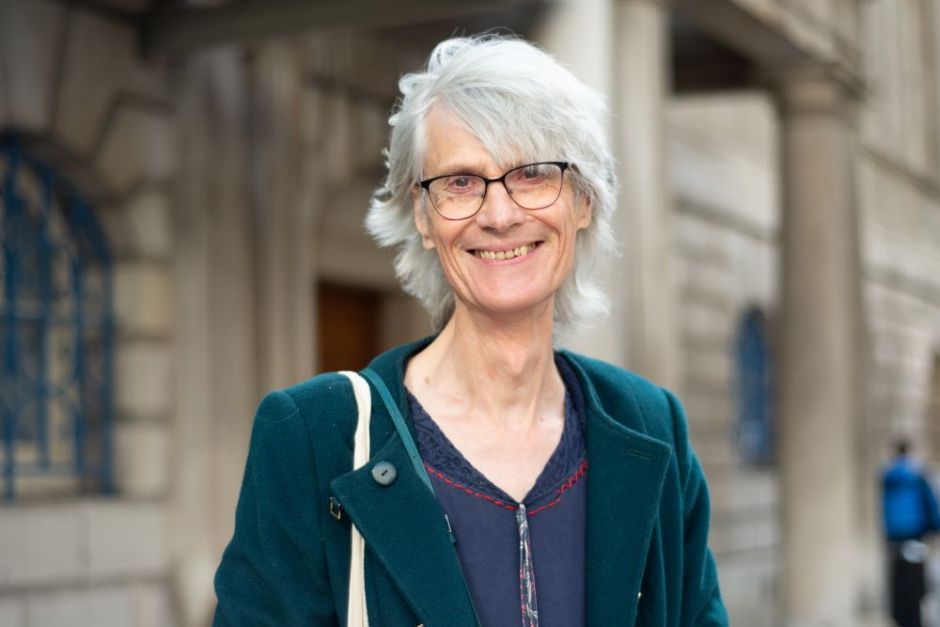
Poet Tracey Rhys, writer of Teaching a Bird to Sing and winner of the Poetry Archive’s video competition reviews Ways To Be Equally Human. Tracey,
| Cookie | Duration | Description |
|---|---|---|
| cookielawinfo-checkbox-analytics | 11 months | This cookie is set by GDPR Cookie Consent plugin. The cookie is used to store the user consent for the cookies in the category "Analytics". |
| cookielawinfo-checkbox-functional | 11 months | The cookie is set by GDPR cookie consent to record the user consent for the cookies in the category "Functional". |
| cookielawinfo-checkbox-necessary | 11 months | This cookie is set by GDPR Cookie Consent plugin. The cookies is used to store the user consent for the cookies in the category "Necessary". |
| cookielawinfo-checkbox-others | 11 months | This cookie is set by GDPR Cookie Consent plugin. The cookie is used to store the user consent for the cookies in the category "Other. |
| cookielawinfo-checkbox-performance | 11 months | This cookie is set by GDPR Cookie Consent plugin. The cookie is used to store the user consent for the cookies in the category "Performance". |
| viewed_cookie_policy | 11 months | The cookie is set by the GDPR Cookie Consent plugin and is used to store whether or not user has consented to the use of cookies. It does not store any personal data. |
2 responses
The audience response might be something completely wonderful that I couldn’t have foreseen. It’s not about getting the reader to do something or feel a certain way. – This is an interesting comment and quite pivotal in my opinion. Writing for an audience response is restrictive and the freedom contained in the second sentence is what leads to great works.
Yes, Kurt Vonnegut said, “Write for one person.”